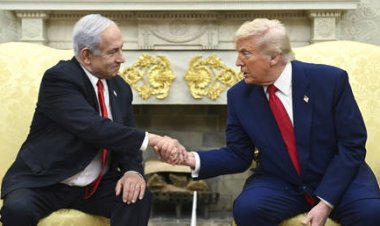Rep. Scott Perry suing to block DOJ access to his cell phone
The 16-page suit, filed last week in Washington D.C. federal court, was not publicly docketed until late Tuesday.


Rep. Scott Perry is suing to block the Justice Department from reviewing the contents of his cell phone, which was recently seized as part of an apparent investigation into the Pennsylvania Republican's connections to former President Donald Trump’s effort to overturn the 2020 election.
FBI agents seized Perry’s phone on Aug. 9 and transported it to the custody of DOJ's inspector general, which has helped lead the inquiry into the push by Trump and his allies to replace department leadership as part of a broader drive to keep Trump in power. Investigators have cited Perry as a key participant in that effort given his help connecting Trump with Jeffrey Clark, a DOJ official whom Trump viewed as an ally in his push.
But Perry indicated in his recent filing that DOJ has not yet accessed materials on his phone and is in the process of obtaining a second search warrant that would guide its review, including a process to screen out potentially privileged materials. Perry is objecting to that bid, demanding that the government be blocked from scouring his phone and that it return any data in its possession.
“[F]ederal agents should not be given carte blanche to root around in Rep. Perry’s phone data looking for evidence that they hope might further their investigation,” Perry’s attorneys John Rowley and John Irving wrote in the 16-page suit, which was filed last week in Washington D.C. federal court but not publicly docketed until late Tuesday.
The case has been assigned to Judge Jia Cobb, an appointee of President Joe Biden.
A similar process has been unfolding in the case of attorney John Eastman, a key architect of Trump’s 2020 election subversion. FBI agents, also operating on behalf of the inspector general, seized Eastman’s phone in June while he was in New Mexico. As with Perry, investigators agreed not to scour the phone’s contents until it obtained a second search warrant setting guardrails on the review.
Eastman quickly sued to force DOJ to return the phone, and he’s expected to appear at a hearing in federal court in New Mexico next month.
Perry indicated that the warrant to seize his cell phone was authorized by Magistrate Judge Susan Schwab in the Middle District of Pennsylvania’s federal court on Aug. 2, a week before agents approached him while he was vacationing with family in New Jersey and took custody of the phone.
Perry indicated that after his phone was seized, he and his attorney conferred with DOJ about an alternative solution to litigation. One framework proposed by the department would permit Perry’s attorneys and its investigators to jointly review Perry’s phone and hash out potential privilege issues together. But, according to Perry, DOJ demanded that he waive his immunity under the Constitution's speech and debate clause as part of the process, which Perry says he declined.
Perry contends that the data on his phone includes material protected by attorney-client privilege, marital privilege and the constitutional provision that limits most legal action against members of Congress related to their official duties.












